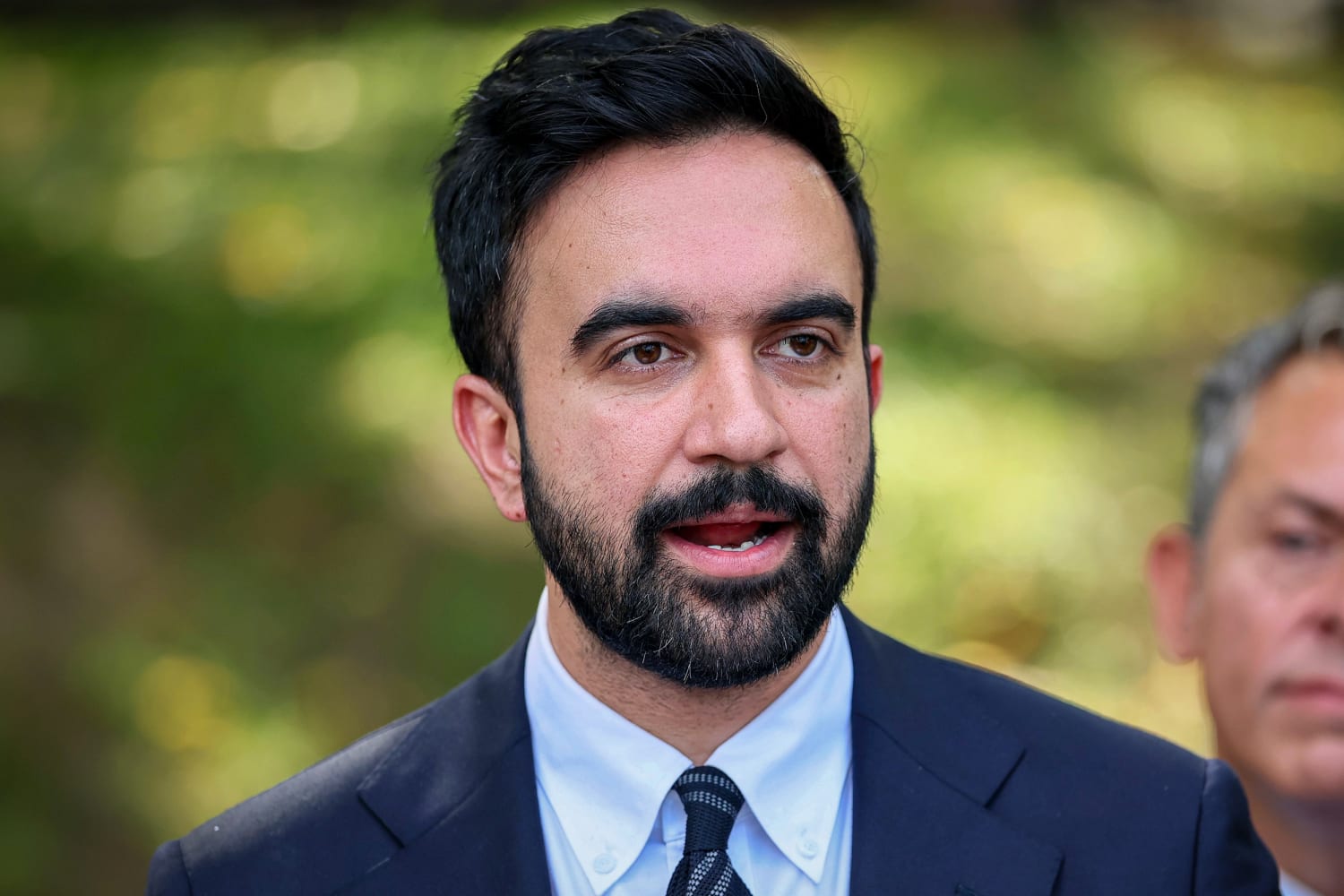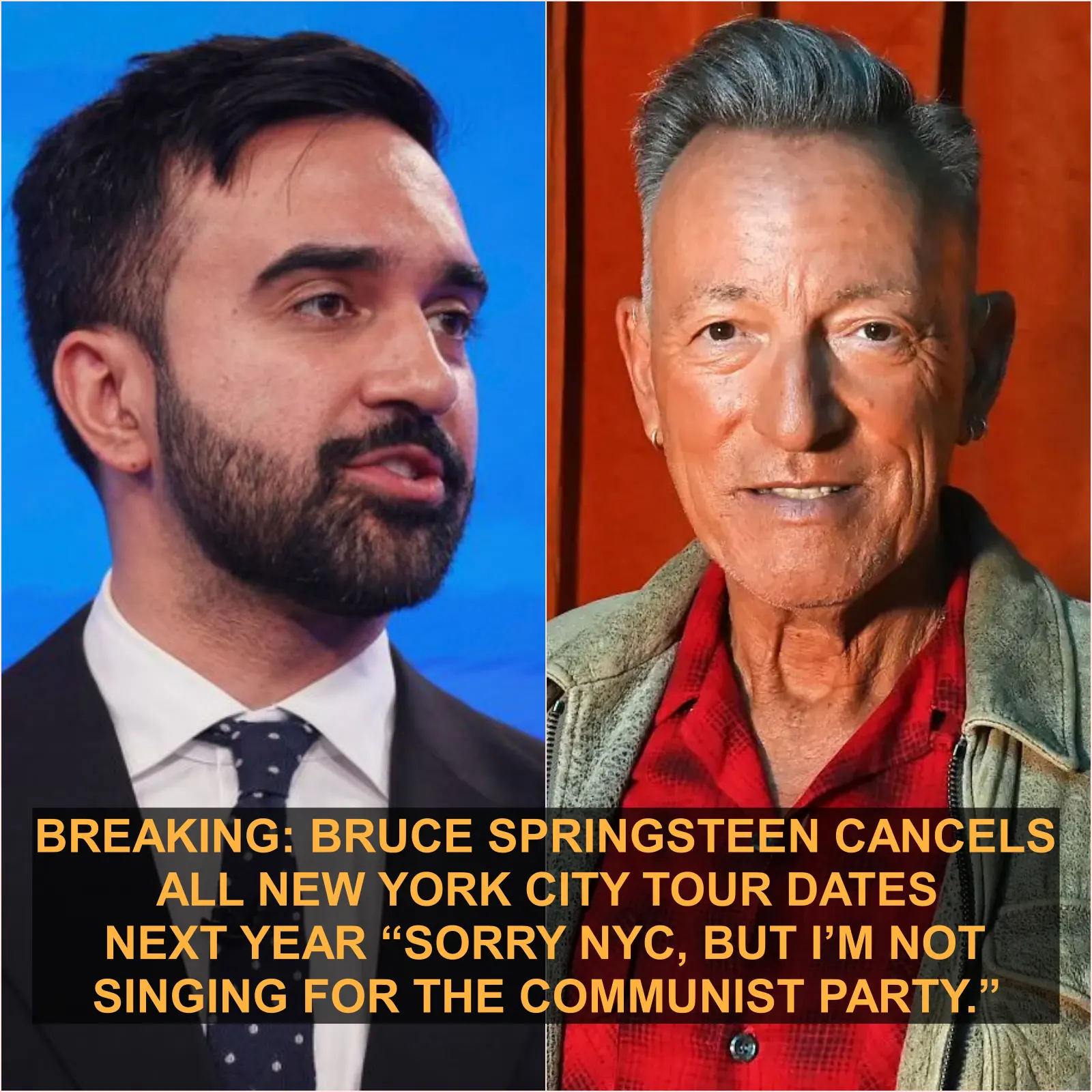Bruce Springsteen’s Five Words That Shook New York: Inside the Shocking 2025 Tour Cancellation

NEW YORK CITY — November 2025
When Bruce Springsteen pressed “post” on a short, five-word message — “Sorry NYC, but I won’t conform” — he could not have imagined how fast those words would rip across the nation. Within minutes, the statement detonated across social media, splintering audiences, dividing commentators, and igniting one of the most dramatic cultural debates of the year. By the time the post was deleted, screenshots had already gone global. And with it came the revelation: Springsteen was canceling his entire 2025 New York City tour schedule.
This is the story behind that moment — the spark, the backlash, the silence, and the storm still unfolding.
A DECISION THAT BLINDSIDED THE INDUSTRY
For decades, Bruce Springsteen has been synonymous with New York and New Jersey — a bridge between gritty street stories and arena-shaking anthems. Madison Square Garden has been a spiritual extension of his stage. His unexpected announcement stunned not only fans, but also promoters, producers, and venue executives who believed the 2025 tour was locked into place.
Sources within the production team describe a tense 48 hours leading up to the post — a period marked by disagreements, disputes, and what insiders call “a fundamental clash of values” between Springsteen and New York event organizers. While no one is confirming the exact details publicly, multiple accounts indicate that the disagreement centered around creative restrictions, political messaging, and press guidelines that Springsteen was allegedly asked to follow.
“He felt boxed in,” said one tour insider familiar with the dispute. “And Bruce Springsteen has never played well in a cage. This wasn’t about money. It was about integrity.”
THE FIVE WORDS THAT STARTED A FIRE
When Springsteen wrote the now-viral message, it was raw, unfiltered, and unapologetic. There was no PR polish — just a sentence that cut straight to the bone of the argument:
“Sorry NYC, but I won’t conform.”
Fans erupted instantly. Supporters praised him for standing by his beliefs, calling him “The Boss, in spirit and in action,” applauding what they saw as a courageous refusal to bend to political or corporate pressure.
Critics, meanwhile, accused him of stoking division in an already polarized climate. Some claimed it was performative. Others insisted it was unnecessary — that an artist of his stature should rise above political noise, not amplify it.
But whether loved or hated, those five words landed like dynamite.
BEHIND THE CURTAIN: WHAT REALLY HAPPENED?
Multiple industry insiders point to a closed-door confrontation that occurred days before the announcement. According to those present, Springsteen was reportedly asked to alter several elements of his show — including commentary he planned to deliver onstage — in order to avoid “political sensitivities” that certain partners feared could spark controversy.
One source described the moment bluntly:
“It was the first time in his career he was told what he could and couldn’t say onstage in New York. That didn’t sit right with him.”
Another insider added that Springsteen had been wrestling privately with the direction of the city’s cultural environment, describing it as “a place he no longer fully recognizes.” Whether due to politics, censorship concerns, or artistic restrictions, the tension had clearly reached a breaking point.
When the private argument spilled into the public sphere through his five-word message, the line between music and politics snapped in an instant.
NEW YORK’S REACTION: SHOCK, FRUSTRATION, AND HEARTBREAK

The response from New York City was immediate and emotionally charged. Madison Square Garden executives expressed “deep disappointment” and “surprise,” while Barclays Center released a brief statement emphasizing that they had been “fully prepared to welcome Springsteen and his team.”
Fans gathered outside MSG within hours of the news spreading, some holding old tour posters, others simply trying to process the loss. Many saw it as a cultural wound: Springsteen’s New York concerts have long been pilgrimages — rituals of sound, sweat, and solidarity.
A fan from Brooklyn, waiting outside Penn Station, summed it up:
“Bruce isn’t just a performer here. He’s our storyteller. Losing this tour feels like losing a piece of who we are.”
But not everyone was devastated. Some supported the cancellation fully, arguing that if Springsteen felt his values were compromised, stepping away was the right call — no matter the cost.
THE BROADER IMPLICATIONS: ART, POLITICS, AND THE NEW BATTLE LINE
Springsteen’s cancellation has already sparked a nationwide conversation about artistic freedom, political pressure, and the increasingly thin line between entertainment and ideology. Artists across genres — from country to hip-hop — have begun weighing in.
Professor Alan Rourke, a cultural historian at NYU, framed it as a watershed moment.
“Springsteen’s statement isn’t just about a tour. It’s a declaration about the state of American music. Artists are being pushed — by audiences, by corporations, by politicians — to fit into ideological boxes. Bruce is saying he won’t.”
Whether that stance becomes a rallying cry or a cautionary tale remains to be seen.
THE ROAD AHEAD: WILL THERE BE A REVERSAL?

For now, Bruce Springsteen has made no further public comments. His team has confirmed the cancellations but declined to elaborate. New York City officials have expressed hope for future reconciliation, but insiders suggest Springsteen is unlikely to reverse course unless significant changes occur behind the scenes.
The unanswered question remains:
Is this a temporary fracture — or the beginning of a lasting rift between The Boss and the city that helped shape his legend?
What is certain is that Bruce Springsteen’s five words will echo far beyond 2025. Not just in headlines — but in the cultural conversation they ignited, and in the fans who now face the prospect of a year without the music that once brought them together.
In a world divided, Springsteen has drawn his line — quietly, firmly, and definitively.
And New York is left to wonder what happens next.
